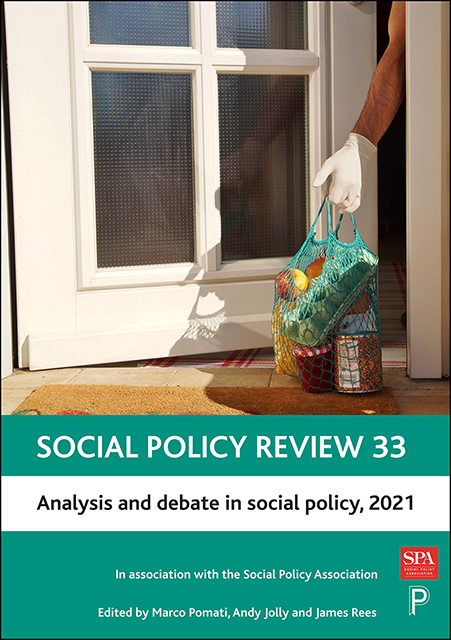2 - New directions for European Union social policy in challenging times
Published online by Cambridge University Press: 14 April 2023
Summary
Introduction
The plan for building a united European Union (EU) has always been in constant turmoil, particularly in its social dimension. Several obstacles and limits have jeopardised the accomplishment of a more socially cohesive EU. The integration of EU social policy has progressed to some degree, along with the completion of the Single Market process and the establishment of Economic and Monetary Union, throughout a 60-year long history of opportunities and drawbacks. While it made domestic social policy autonomy less stringent, European integration continued to be predominantly dominated by an economic, trade-oriented focus (Whyman et al, 2014). So far, this means, first, that contrary to other economic and financial policy areas (for example, removal of trade barriers, labour and business mobility, monetary union), EU legal action in the social policy field continues to lag behind. Owing to different regimes of welfare and industrial relations systems, along with distinct national legislative frameworks and divergent levels of economic development, advancements in areas such as social and employment policies are challenged by opposing interests, lack political support and are stymied by the absence of strong coalitions between member states.
Among the policy areas where political and legislative responsibility remains firmly anchored at the national level lie social security and redistributive policies. Redistribution and mutual insurance of social risks were not included in the foundation of the EU project. Throughout its development, social regulation has been devoted ‘to solve the problems created by market failures, such as negative externalities, information or competition deficiencies’, rather than to ‘correct social inequalities through redistribution’ (Dupuy and Jacquot, 2017: 98). In the face of recent developments, these seem to be crucial domains for national welfare states to cooperate. The national boundaries of welfare are crossed by common issues such as demographic change (especially population ageing) that put its financial sustainability under severe stress. Moreover, technological transformation and economic globalisation have extensive impacts on labour markets, affecting large groups of workers/citizens. Despite individual countries’ idiosyncrasies, all member states are challenged by these transformative trends that, to a certain extent, exert additional internal pressure at EU level, in terms of (nationalist) competition and risk of detrimental social dumping strategies. To these internal challenges, external ones have been added as a result of recent crises. The latter expose the social and economic inequalities that continue to be deeply entrenched in EU countries, though with various levels of intensity and shapes.
- Type
- Chapter
- Information
- Social Policy Review 33Analysis and Debate in Social Policy, 2021, pp. 29 - 48Publisher: Bristol University PressPrint publication year: 2021



